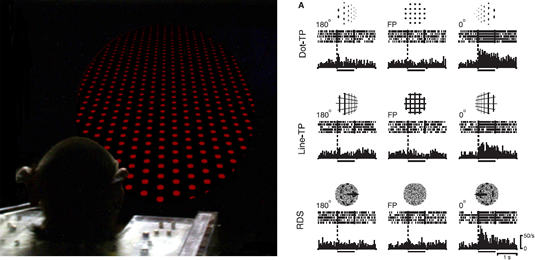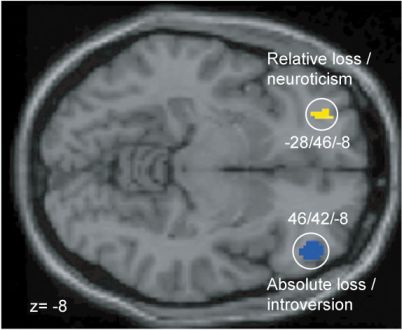Members
Ken-Ichiro Tsutsui (Cognitive/Behavioral Neuroscience)

Assoc. Prof. Ken-Ichiro Tsutsui graduated, and received his Ph.D. in Experimental Psychology, from the University of Tokyo. Since then he has been studying the neural mechanisms of higher cognitive functions, first as a JSPS Fellow in the Department of Physiology, Nihon University School of Medicine, next as a Research Associate in the Department of Anatomy, University of Cambridge, and presently as an Associate Professor in the Tohoku University Graduate School of Life Sciences. He was awarded the Japan Neuroscience Society Young Investigator Award in 2003 for his series of studies on the neural mechanisms of three-dimensional vision. He uses theories and concepts in behavioral and cognitive psychology with electrophysiological, neurochemical, and neuroimaging techniques, in order to investigate the neural mechanisms of higher cognitive functions. His current research interests cover parietal-prefrontal interactions for 3D vision and mental image manipulation, prefrontal-inferotemporal interactions for categorization and inference, and prefrontal-limbic-striatal interactions for reward processing and decision-making.
- Introduction of Research
-
Neural basis of higher congnitive function
We are interested in the neural background of various cognitive functions. We combine behavioral, electrophysiological, and neuroimaging techniques in order to investigate the relations between behavior and neural activity at the level of single neurons and individual brain regions. Our research interest covers wide range of cognitive processes, such as:- Three-dimensional vision (parietal association cortex)
- Categorical reasoning, decision making (prefrontal cortex)
- Reward representation, incentive learning, neuroeconomics (cortex - basal ganglia - brainstem interactions)
A certain cognitive function cannot be attributed to a specific brain structure. Rather than that, harmonic interactions of various brain structures are necessary for any cognitive function. In order to thoroughly understand the neural background of a cognitive function, it is very important to investigate this dynamic process taking place in the brain. The basic strategy of our research is to first develop a suitable behavioral task to examine the target cognitive function, and then to perform electrophysiological recordings in various brain regions using primates and/or rodents as subjects. By comparing the properties of the neuronal activity recorded in different brain regions, we can build up a model of neural circuit connecting within and between multiple brain regions underlying the cognitive function. The results obtained by the electrophysiological recordings can be confirmed in humans at the level of brain regions by neuroimaging experiments using the same behavioral task.

Fig.1
A monkey looking at a three-dimensional visual stimulus (left) and the activity of a 3D surface orientation selective neuron in the parietal area CIP (right)(from Tsutsui et al., Science 2002)
Fig.2
Activations of lateral orbitofrontal cortex for financial loss correlated with personality factors (introversion/neurotilism).(Fujiwara et al.,Eur J Neurosci(2008)) - Articles
-
- Oyama K, Hernádi I, Iijima T, Tsutsui KI. Reward prediction error coding in dorsal striatal neurons. J Neurosci 30, 11447-57, 2010
- Yamada M, Pita MC, Iijima T, Tsutsui KI. Rule-dependent anticipatory activity in prefrontal neurons, Neurosci Res 67, 162-71, 2010
- Fujiwara J, Tobler PN, Taira M, Iijima T, Tsutsui KI. Segregated and integrated coding of reward and punishment in the cingulate cortex. J Neurophysiol 101, 3284-93, 2009
- Fujiwara J, Tobler PN, Taira M, Iijima T, Tsutsui KI. A parametric relief signal in human ventrolateral prefrontal cortex. Neuroimage 44, 1163-70, 2009
- Tsutsui KI, Sakata H, Naganuma T, Taira M Neural correlates for perception of 3D surface orientation from texture gradient. Science 298, 409-412. 2002